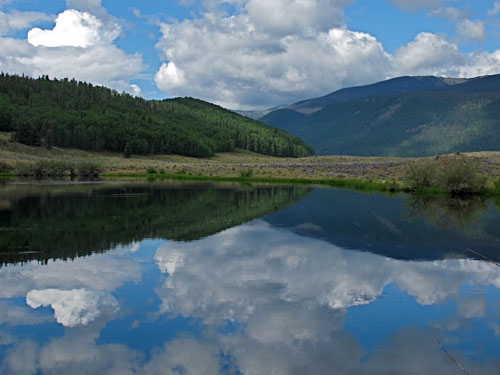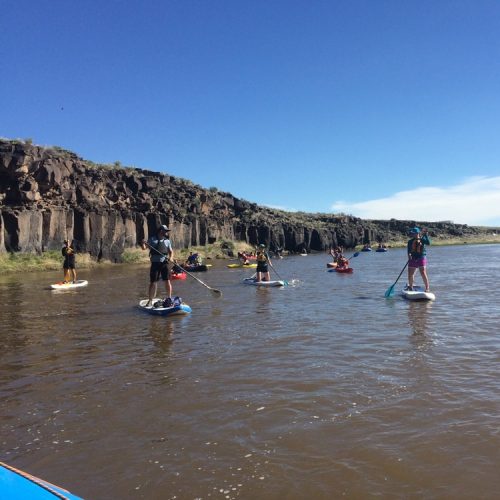
Salazar Rio Grande del Norte Center
The Salazar Rio Grande del Norte Center’s Water Education Initiative works with local water leaders, educators and partners. Together, we bring current information and news, inspiring insights, educational resources, innovative solutions and new opportunities to the San Luis Valley’s community. Together, we can build a better water future.
At Adams State University our water programs aim to educate and empower the next generation of water leaders.
Water Studies Minor Outcomes
The Salazar Rio Grande del Norte Center’s Water Education Initiative offers many exciting opportunities for Adams State students, community members, and those in the Water Studies Minor.
Water Studies Minor Program Curriculum
Explore Some of Our Courses
WATR 101: Water Essentials: How Water Works in the West (3 hours)
This course is an introduction and overview of water in the West, from its basic chemical structure and physics as well as hydrology and water’s role in nature to how water serves and is managed as a beneficial resource for people. This course introduces foundational concepts of water’s functional properties, how humans have put water to work and how we have developed systems of water allocation, administration, and management, including an overview of core terminology, and fundamental principles of water management. The course will focus on the Western water environment and issues, with specific discussions on the application and administration of water in Colorado’s Rio Grande Basin.
WATR 201: Water Fundamentals and Functions (3 hours)
This course is the second in a two-course series emphasizing essential water education. It will expand on fundamental concepts of ground and surface water functions and management as introduced in the prerequisite course, WATR 101 – Water Essentials: How Water Works in the West. The design of this course is to explore the hydrologic processes and cycle in terms of both ground and surface water; examine the environmental aspects of watersheds that affect the hydrologic output, including forest health, precipitation accumulation, and infrastructure regulating surface water runoff; examine and analyze the administration of water and agricultural water use, with a focus and field experiences in the San Luis Valley and Rio Grande Basin of Colorado. The course will include required field trips.





